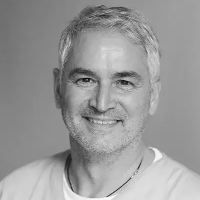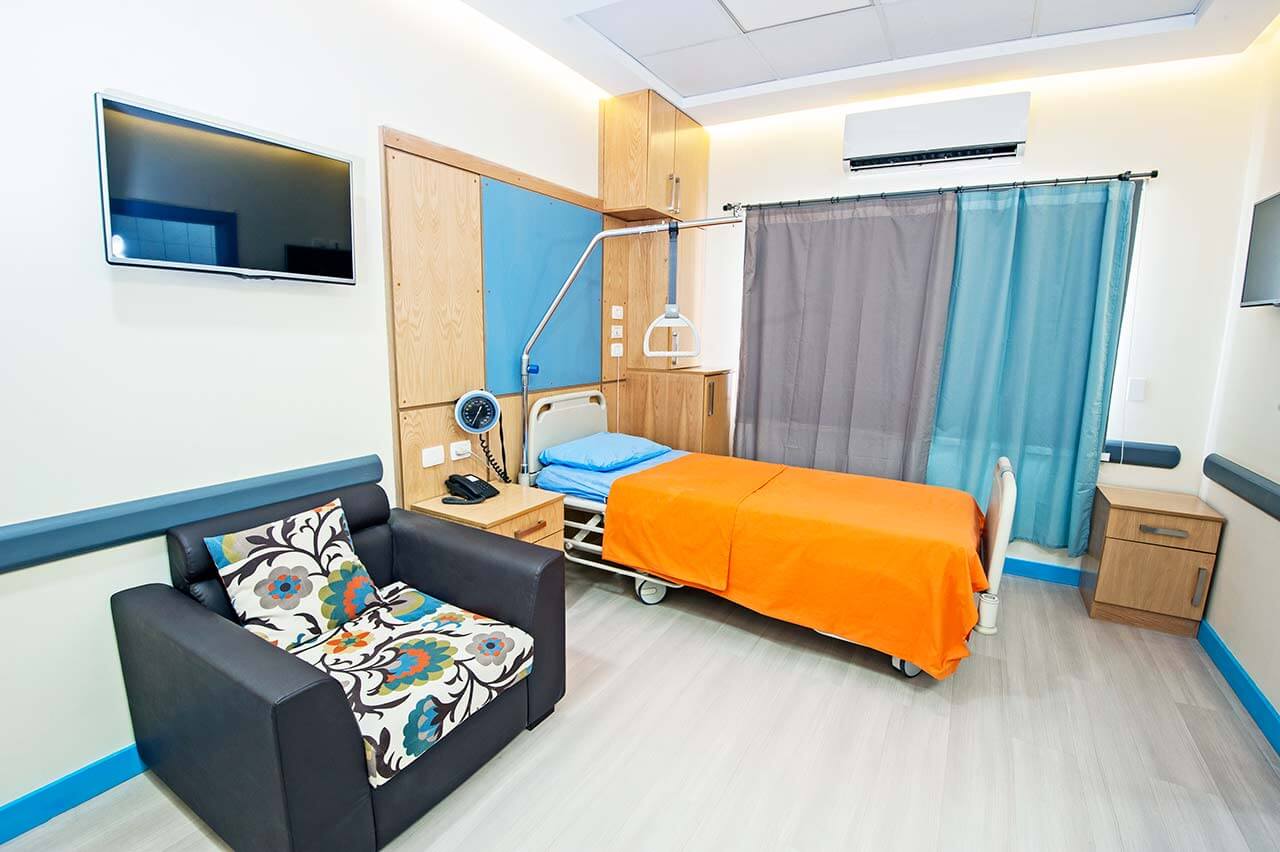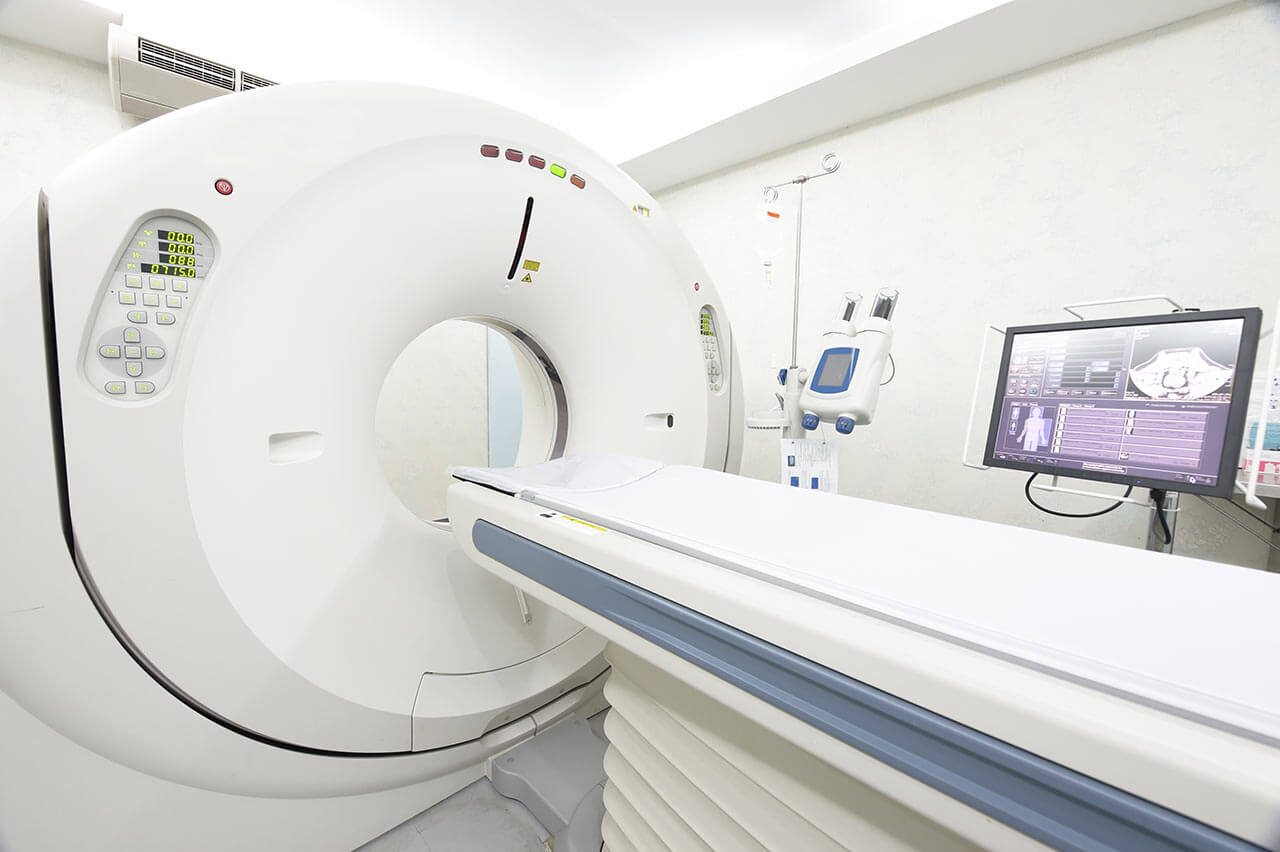
The program includes:
- Initial presentation in the clinic
- case history collection
- general clinical examination
- laboratory tests:
- complete blood count
- general urine analysis
- biochemical analysis of blood
- TSH-basal, fT3, fT4
- tumor markers (thyroglobulin (TG),
TG antibodies (TgAb)) - indicators of inflammation
- indicators of blood coagulation
- ultrasound scan of the thyroid gland
- thyroid scintigraphy
- radioiodine therapy
- symptomatic treatment
- cost of essential medicines
- nursing services
- stay in the hospital with full board in 2-bed room
- elaboration of further recommendations
How program is carried out
During the first visit, the doctor will conduct a clinical examination and go through the results of the available diagnostic tests. After that, you will undergo the necessary additional examination, such as the assessment of liver and kidney function, ultrasound scan of the thyroid gland and lymph nodes of the neck, thyroid scintigraphy. This will allow your doctor to assess how effective radioiodine therapy will be and how well you will tolerate it. In addition, the doctor will calculate the dosage of the drug you need.
Radioiodine therapy with I-131 includes oral administration of the drug. You will take 1 to 4 radioactive iodine capsules or drink about a teaspoon of liquid with radioactive iodine. You will take the drug in your ward, without visiting the manipulation room or operating room.
After taking radioactive iodine, you will stay in your ward for 24 to 48 hours. The next morning after the procedure, the dosimetrist will determine the amount of radiation in your body. If the amount is low, you will be allowed to leave your ward and will be discharged from the hospital. If the amount is high, then the dosimetric control will continue for another day, until a low amount of radiation in your body is detected.
The isotope I-131 can accumulate not only in the thyroid gland, but also partially in the salivary glands. This can cause dry mouth. To get rid of this side effect, you will dissolve sour candies, as this stimulates the work of salivary glands.
The drug is quickly excreted by the kidneys, and after 48 hours you will no longer pose a danger to others. After the procedure, you should drink at least 1 glass of water per hour and visit the toilet regularly. This will allow you to quickly remove radioactive iodine from the body. Food can be usual, without excess iodine in the diet.
During these 48 hours, you can read, use a mobile phone, tablet or computer. All these devices will not be a source of radiation in the future.
Control examination includes scintigraphy, which is performed 7-10 days after radioiodine therapy. Based on the results of the examination, the doctor will determine how well the cells of the thyroid gland (or cancer metastases) have accumulated radioactive iodine. In a few weeks after the procedure, you will have a control blood test for thyroid hormones. In the future, you will visit an endocrinologist regularly.
Required documents
- Medical records
- MRI/CT scan (not older than 3 months)
- Biopsy results (if available)
Service
You may also book:
 BookingHealth Price from:
BookingHealth Price from:
About the department
The Department of Nuclear Medicine at the Bundeswehr Hospital Berlin offers the full range of diagnostics and treatment using modern radioactive agents and advanced medical equipment. Diagnostic options include examinations of the thyroid gland, skeleton, heart, kidneys, lungs, brain, liver and biliary tract, as well as the detection of inflammatory foci. The specialists most often use scintigraphy, but PET/CT scanning is also available here. In the field of therapy, the primary task of the department's doctors is the treatment of thyroid diseases (radioiodine therapy). The department's doctors also conduct modern pain management for bone metastases and inflammatory joint diseases. All medical services meet the standards of the German Society of Nuclear Medicine. The department's specialists make every effort to ensure that during the diagnostics and/or treatment the patient feels as comfortable as possible and is satisfied with the result. The department is headed by Dr. med. Christian Çelebi-Hoffmann.
To assess the structure and function of various organs, the department's doctors administer special radioactive compounds (radiopharmaceuticals or radionuclides) into the human body, which are targetedly accumulated in the tissues to be examined. Scintigraphy is performed using modern gamma cameras, which record metabolic processes in various organs. PET-CT scanning is carried out in cooperation with the Charite University Hospital Berlin. It is necessary to prepare for some diagnostic procedures (for example, refuse to take certain drugs the day before the examination, refuse food and water on the day of the examination), which the attending physician tells the patient individually. Radionuclide examinations do not cause any pain or discomfort, which is a great advantage for the patient.
The department's feature is a specialized Radioimmunoassay Laboratory, which works with radioactive agents. With the help of reliable examination methods, the laboratory experts can detect certain concentrations of a substance in the blood. The examined biological material is mixed with radioactive substances, processed in accordance with the standards and re-examined (in vitro diagnostics). Particular attention in the laboratory is given to the examination of the functional activity of the thyroid gland.
As for therapy, the most popular procedure is radioiodine therapy, which allows the doctors to successfully deal with benign and malignant thyroid diseases. Radioiodine therapy is a conservative treatment method, the essence of which is the oral administration of a radioactive isotope of iodine (I-131) in the form of gelatin capsules or a colorless and tasteless solution. The dosage of the drug is determined by the attending physician individually, depending on the type of thyroid pathology, the presence or absence of metastases in oncology and other factors. Getting inside the thyroid gland cells, radioactive iodine irradiates them, and the cells cease to perform their functions in the synthesis of hormones, which is the therapeutic effect. Radioiodine therapy is an absolutely safe treatment method, it is well tolerated by patients and provides an effective result.
Radiosynoviorthesis is also a popular radionuclide therapeutic procedure. The method is used for the treatment of inflammatory joint diseases with the help of intra-articular injections of a radioactive substance under ultrasound or X-ray guidance. Radiosynoviorthesis can relieve pain or completely eliminate it, thereby improving the function of the affected joint.
The department's range of medical services includes:
- Diagnostic options
- Scintigraphy and ultrasound examinations of the thyroid gland and parathyroid glands
- Skeletal scintigraphy (specific areas and total scanning)
- Myocardial scintigraphy
- Kidney functional scintigraphy
- Functional lung scintigraphy to detect circulatory and ventilation disorders
- Scintigraphy for cerebral circulation disorders
- Functional biliary tract scintigraphy
- Functional salivary gland scintigraphy
- Bone marrow scintigraphy
- Special types of scintigraphy to detect inflammatory processes in the bones and soft tissues (in particular, in the diagnostics of fever of unknown origin)
- Lymph node scintigraphy (including sentinel lymph nodes) for skin cancer
- Ultrasound scanning
- Fine needle aspiration biopsy
- Examinations within the framework of the Radioimmunoassay Laboratory
- PET-CT (in collaboration with the Charite University Hospital Berlin)
- Therapy
- Pain management for bone metastases
- Pain management for chronic inflammatory changes in the knee joint (radiosynoviorthesis)
- Radioiodine therapy for the treatment of thyroid diseases
- Other methods of diagnostics and treatment
Curriculum vitae
Professional Career
- 1994 Admission to medical practice.
- 1994 - 1996 Internship, Steglitz Hospital at the Free University of Berlin.
- 1996 - 2001 Employee of the Department of Radiology, Charite University Hospital Berlin.
- 2001 - 2006 Employee of the Department of Nuclear Medicine, Charite University Hospital Berlin.
- 2004 Board certification in Diagnostic Radiology.
- 2006 Board certification in Nuclear Medicine.
- 2007 - 2013 Physician, Private Practice in Nuclear Medicine.
- 2013 - 2016 Head Physician, Department of Nuclear Medicine, Charite University Hospital Berlin.
- 2016 - 2019 Physician, Private Practice in Nuclear Medicine.
- Since 01.07.2019 Head Physician of the AnthroNUK Center for Nuclear Medicine.
Memberships in Professional Societies
- German Society of Radiology.
- German Society of Nuclear Medicine.
- Berlin-Brandenburg Society of Nuclear Medicine.
- Berlin-Brandenburg Society for Radiology.
Photo of the doctor: (c) AnthroNUK
About hospital
The Bundeswehr Hospital Berlin enjoys a reputation as one of the leading medical facilities in Germany, where patients receive top-class medical care corresponding to the high standards of European university medicine. The medical center is an academic hospital of the Charite University Hospital Berlin – the largest and the most reputable in all of Europe. The main clinical focuses of the medical facility include emergency care, traumatology, urology, internal medicine, surgery, neurosurgery, neurology, nuclear medicine and others. The hospital offers 15 specialized departments, whose medical teams guarantee excellent treatment results, safety and an individual approach to their patients.
The hospital's staff consists of more than 1,100 competent employees. They work hand in hand to provide their patients with comprehensive and the most effective treatment. Of paramount importance is an individual approach to each patient and his clinical case. The specialists are always open to a dialogue with their patient, tell about the specificities of the upcoming treatment and its expected results. Whenever required, it is possible to involve experienced psychologists in the therapeutic process, who will help the patients to get rid of depressive states and set themselves up for a favorable treatment outcome.
The hospital has at its command state-of-the-art technical resources: equipment for minimally invasive interventions, diagnostic and therapeutic endoscopic procedures, navigation systems, advanced surgical microscopes, various laser devices, imaging systems for the accurate examinations and percutaneous interventional procedures.
The hospital has a quality management system, thanks to which it can strictly control the quality of patient care and other internal processes. In addition, the healthcare facility became the first Bundeswehr hospital, which was awarded the KTQ® certificate (06.02.2006). The KTQ® certification is carried out every three years and the hospital always passes it successfully. And then in 2000, the hospital was certified in accordance with the DIN EN ISO 9001:2000 standards. These achievements testify to the outstanding quality of medical care and the leading position of the hospital in the healthcare sector.
Photo: (с) depositphotos
Accommodation in hospital
Patients rooms
The patients of the Bundeswehr Hospital Berlin live in comfortable single and double patient rooms. Each patient room is equipped with an ensuite bathroom with a shower and a toilet. The patient room furnishing includes a comfortable bed, a bedside table, a TV and a telephone. To ensure a pleasant hospital stay, here is a library with an excellent choice of audiobooks, magazines and games. There is also a beautiful park on the territory of the hospital where one can enjoy peace, clean air and beautiful nature.
Meals and Menus
The hospital offers delicious and healthy three meals a day: a buffet breakfast, a hearty lunch and a light dinner. Every day, patients have a choice of three menus. Vegetarian dishes are also available.
If for some reason you do not eat all the foods, you will be offered an individual menu. Please inform the medical staff about your dietary preferences prior to the treatment.
Further details
Standard rooms include:
Accompanying person
Your accompanying person may stay with you in your patient room or at the hotel of your choice during the inpatient program.
Hotel
You may stay at the hotel of your choice during the outpatient program. Our managers will support you for selecting the best option.




